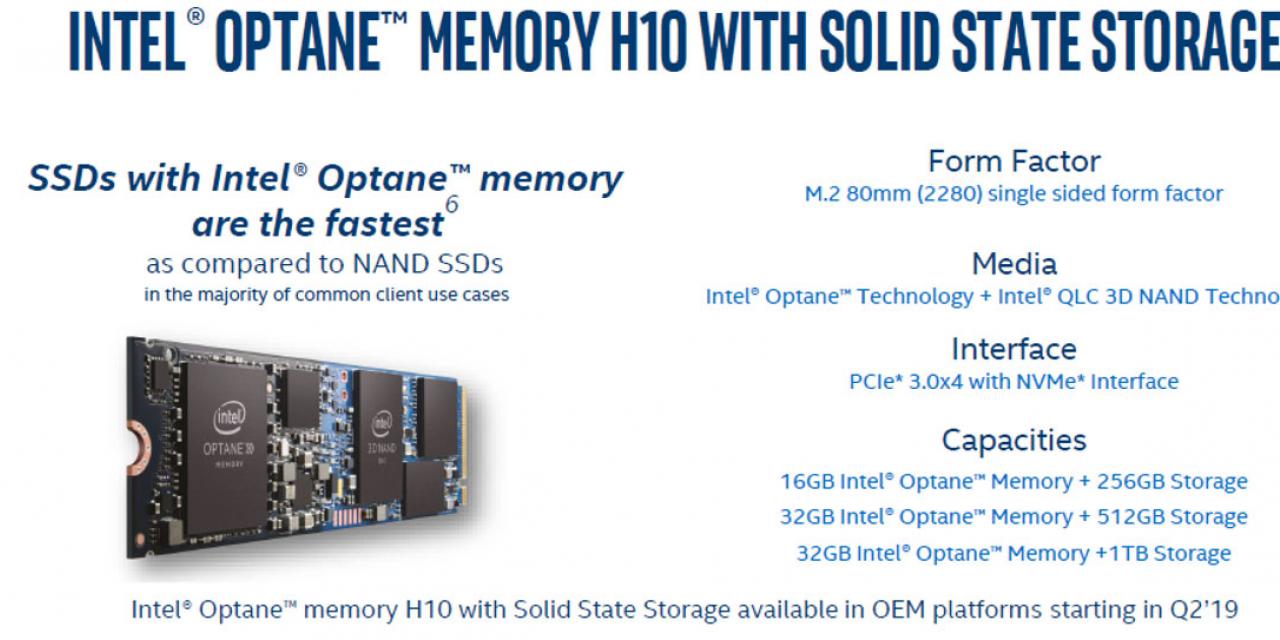
Intel's Optane SSDs are an intriguing piece of technology that look to offer traditional storage and a higher-speed memory caching using its Optane technology, all in one package. The H10 combines 16GB of Optane memory with 256GB of storage, 32GB with 512GB, or 32GB, with 1TB of storage, depending on requirements. Recently that's been a component that only desktops could enjoy, but no longer. Starting now, Intel will provide the H10 Optane SSD to OEM system manufacturers for inclusion in laptops too.
Originally unveiled at CES 2019, the Optane SSDs were designed to provide high-speed access to frequently used data, and slower (but hardly slow) PCIexpress storage for larger and less frequently accessed data. That's perfect for not only speeding up a system, but fitting into one without much physical space. Like laptops.
That's why this technology could really shine in a mobile setting.
By the numbers, though, it shouldn't make a huge difference. The performance is 2,400MBps read and 1,800MBps right are good, but hardly astounding. What Hexus highlights though, is that Intel's new Optane SSDs can maintain that speed throughout most general workloads. Intel's research suggests that although traditional PCIExpress SSDs (and to a lesser extent, SATA SSDs) can hit high-speeds, they don't do so consistently.
That's where Optane SSDs are supposed to show serious improvements. By switching between high-speed Optane memory and traditional NAND storage, Intel's drives can operate far quicker over longer periods of time, completing workloads at high speed which would traditionally see some slowdown or stuttering.
And now they're coming to laptops. Expect to see the first products shipping with this hardware inside after the summer.








